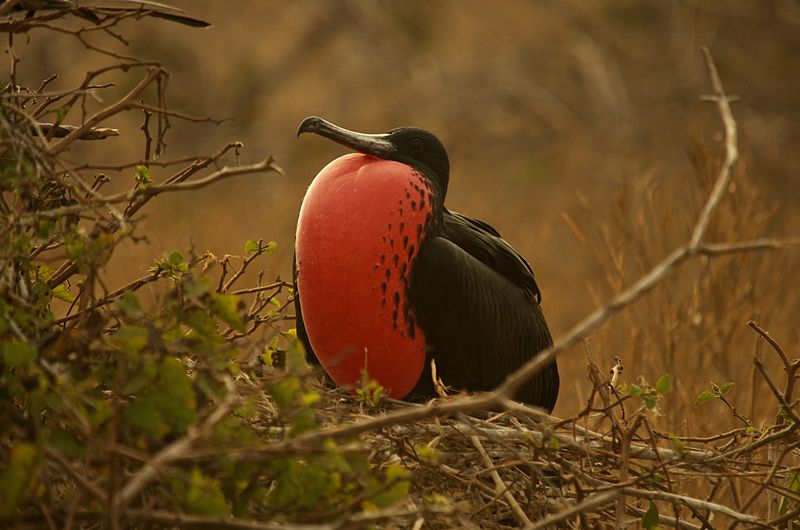
Category: Birds

The Magnificent Frigatebird is the largest species of frigatebird and is common in the tropical and sub-tropical waters off America on both the Pacific and Atlantic coasts. They have brownish-black plumage, a deeply forked tail, and long, narrow wings. The males are recognized by their large, bright red neck (gular) sacs that they can inflate to attract a mate. In addition to eating fish plucked from the ocean’s surface while in flight, they are also known to engage in “kleptoparasitism,” a curious adaptation wherein they harass another bird until it regurgitates its catch.
http://www.allaboutbirds.org/guide/Magnificent_Frigatebird/id

Sugar, Honey Honey…
Too much sugar in the diet leads to obesity for humans: if we drink a can of soda pop (which is mostly high fructose corn syrup), the fructose is converted into fat by our livers; drink too many too often, and we end up gaining weight. But for hummingbirds, sugar isn’t something to eat sparingly: it is a source of power! Because of their simple, sugar rich diet, hummingbirds have adapted the ability to fuel their muscles with fructose without first converting it to fat - a feat unique among vertebrates. We do not yet know for sure how they process it so fast, though experiments have demonstrated that they do indeed possess this amazing capability. How fast, you ask? Their metabolisms are so extreme, a human-sized hummingbird would have to drink a can of soda pop every minute in order to gain weight!
Learn more >>
 Discover Animals is a web-based educational resource offered by the NAIA
Discover Animals is a web-based educational resource offered by the NAIA